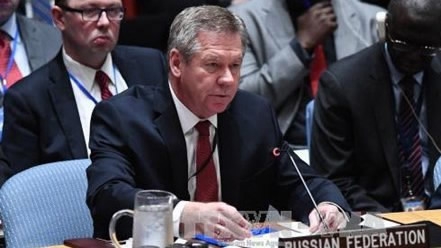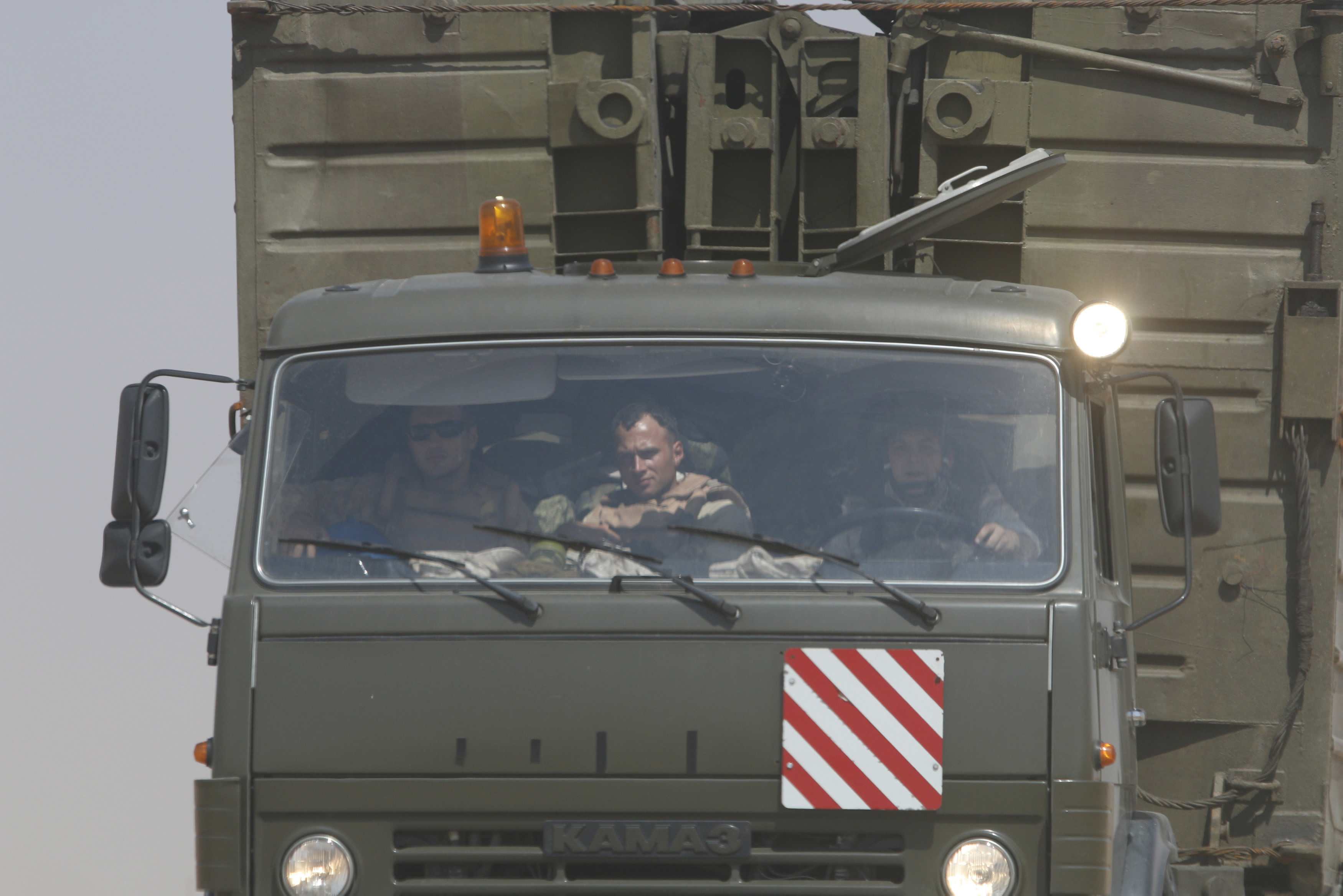
Politics
13:26, 22-Sep-2017
Russia accuses EU of politicizing aid package
CGTN

Russia on Thursday clashed with the European Union over Syria, accusing the bloc of politicizing aid by linking reconstruction funds to a political transition that would end the war.
The EU in April secured pledges of 6 billion US dollars in aid for Syria, now in its seventh year of war, with over 330,000 people dead.
At an EU-organized conference held on the sidelines of the UN General Assembly in New York, Russia's deputy foreign minister said aid was being used as a political tool to build pressure on Syrian leader Bashar al-Assad.

Russian trucks seen on the road heading to Deir al-Zor, Syria September 21, 2017. /Reuters Photo
Russian trucks seen on the road heading to Deir al-Zor, Syria September 21, 2017. /Reuters Photo
"The politicization of issues related to aid and the statements on the need to wait for the end of the political process are unacceptable," said Gennady Gatilov.
European officials insist that aid will not flow to Syria until a credible political transition is agreed during UN-led negotiations to end the war.
But Gatilov said aid was needed now "to rebuild schools, hospitals and critical infrastructure."
Britain argued that the Assad regime should not be rewarded with aid, while France accused Damascus of continuing to block humanitarian deliveries.
EU Foreign Policy Chief Federica Mogherini announced that a second conference on reconstruction aid for Syria will be held in the spring of 2018.
"We are ready to help even more, to see how we can help to bring back normal life in areas where violence has de-escalated, and to start working on reconstruction, only once a political agreement has been reached in Geneva," said Mogherini.

Federica Mogherini, the High Representative of the European Union for Foreign Affairs, speaks at the donors Conference for Syria in London, Britain February 4, 2016. /Reuters Photo
Federica Mogherini, the High Representative of the European Union for Foreign Affairs, speaks at the donors Conference for Syria in London, Britain February 4, 2016. /Reuters Photo
The UN is planning to convene a new round of peace talks next month between Syria's government and the opposition even though past negotiations have failed to yield progress.
With the rebel fighting position weakened, experts say Syria faces no pressure to make concessions at the negotiating table, and especially not over the question of Assad's future.
The war in Syria has dropped off the top of the diplomatic agenda during this year's annual gathering of world leaders at the UN, which instead has focused heavily on the nuclear threats from the DPRK and Iran.
Source(s): AFP

SITEMAP
Copyright © 2018 CGTN. Beijing ICP prepared NO.16065310-3
Copyright © 2018 CGTN. Beijing ICP prepared NO.16065310-3